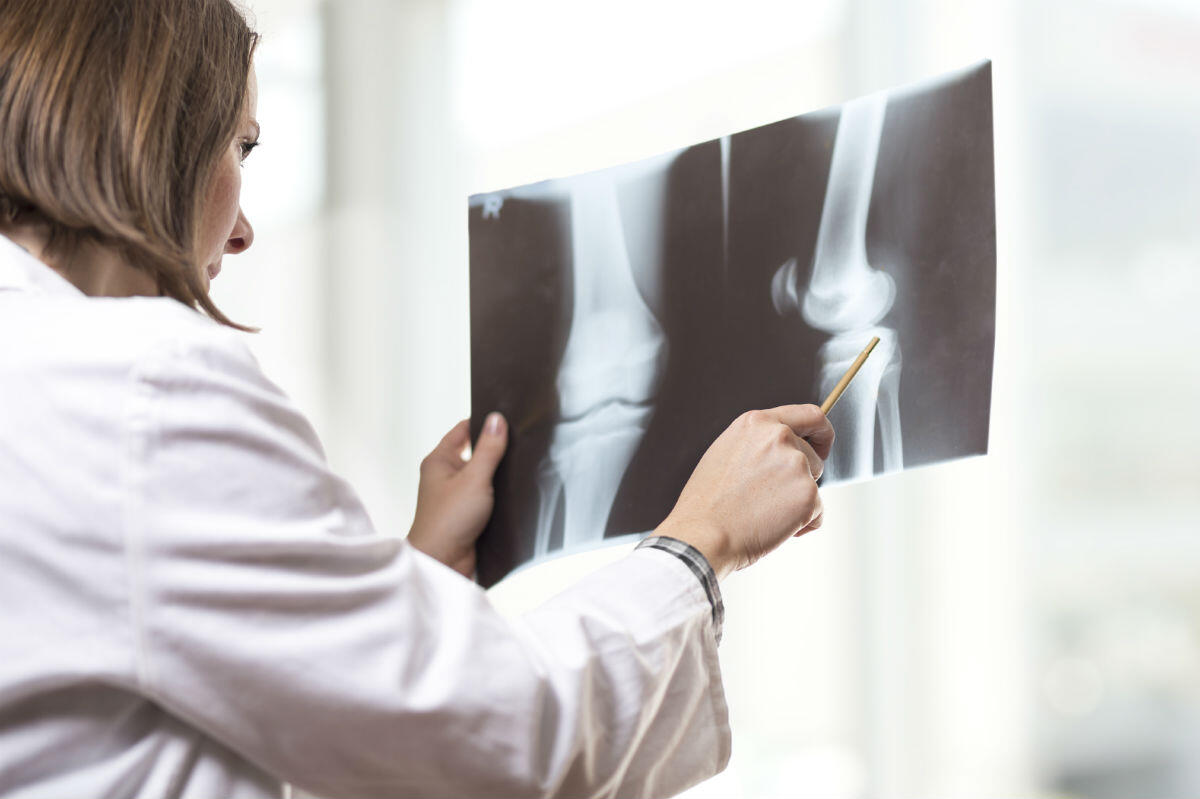Arthroscopic surgery has become a treatment of choice for many work-related orthopedic injuries.

Workers are prone to a variety of injuries at the workplace. While many work-related injuries are minor and require minimal treatment, other injuries are serious and require extensive and prolonged treatment. Such injuries can leave a worker unable to attend work for a long time. Injuries that involve damage to the joints, such as the knee and shoulder, may require surgical intervention. Arthroscopic surgery has become a treatment of choice for many work-related orthopedic injuries.
Arthroscopic Surgeries
Arthroscopy surgery is a minimally invasive surgical procedure used for examination and sometimes treatment of damage of the interior of a knee or shoulder joint. The surgery is performed using an arthroscope, a type of endoscope that is inserted into the damaged joint through a small incision. These procedures are usually performed either to examine or to treat various orthopedic conditions such as:
- injuries to the shoulder, wrist, or knee such as tendon tears or cartilage tears
- synovitis, which refers to the inflammation of the lining of the shoulder, knee, elbow, ankle, or wrist
- loss of cartilage caused by osteoarthritis
- spinal deformities
- spinal disc herniations
- spinal trauma
- ACL reconstruction
- trimming damaged cartilage
- torn surface cartilage
- torn or floating cartilage
Types of Arthroscopic Surgery
- knee arthroscopy
- wrist arthroscopy
- shoulder arthroscopy
- spinal arthroscopy
Recovery from Arthroscopic Surgery
Arthroscopic surgeries are performed under general, local, or spinal anesthesia depending on the condition. The patient is instructed about incision care, exercises to be performed for faster recovery, and activities to be avoided to prevent further injuries.
The recovery period after an arthroscopic surgery is much shorter than that of general surgery. An injured worker may be asked to follow up with the surgeon approximately a week after the surgery. The doctor may prescribe a rehabilitation program for a speedy recovery. The patient can usually resume work and normal activities within a few days.
Do You Need Legal Help?
It is important to understand that these types of surgical procedures may impact an injured worker in ways that can leave him or her with some level of permanent partial disability. If you have been injured at the workplace, speak with a St. Louis work-related injury lawyer from The Law Office of James M. Hoffmann. We have experience in handling work-related injuries that result in these types of surgeries. Call us for a free consultation at (314) 361-4300.
Work Related Injuries
Work Related ACL Injury
Leg Amputation
Finger Amputation
Ankle Injury
Ankle Replacement
Arthroscopic Surgery
Work Related Arthritis
Accidental Asphyxiation
Work Related Asthma
Avulsion Injury
Back Injury at Work
Back Pain from Work
Lower Back Pain at Work
Chronic Back Pain
Head Injury Internal Bleeding
Internal Bleeding after Injury
Blood Related Illness
Broken Bones
Brain Injuries
Traumatic Brain Injury
Bursitis Work Related
Burn Injury at Work
Electric Burn
Chemical Burn
Calcaneus Fracture
Sudden Cardiac Arrest
Cardiovascular Disease
Carpal Tunnel Work Related
Cartilage Injury
Cervical Disc Replacement
Cervical Fusion
Chronic Illness
Work Related Chronic Pain
Work Related Concussion
Contagious Disease
Work Related COPD
Skin Corrosion
CRPS Disease
Crush Injuries
Cubital Tunnel Syndrome
Work Related Death
Degenerative Bone Disease
Degenerative Disc Disease Work Related
Reflex Sympathetic Dystrophy
Work Related Tennis Elbow
Elbow Injury
Epicondylitis at Work
Work Related Eye Injury
Fibromyalgia
Work Related Foot Injuries
Work Related Injuries to the Hand
Hand Arm Vibration Syndrome
Work Related Head Injury
Closed Head Injury
Open Head Injury
Work Related Hearing Loss
Heart Attack Work Related
Stroke at Work
Heat Stroke at Work
Intracerebral Hemorrhage
Hernia Work Related Injury
Work Related Herniated Disc
Hip Fracture
Hip Replacement
Hip Injuries
Intracranial Injury
Broken Jaw
Work Related Knee Injuries
Knee Fracture
Laceration
LCL Injury
Legionnaires Disease
Ligament Tear
Limb Loss
Lumbar Disc Replacement
Lumbar Fusion
Lumbar Spinal Fusion
MCL Tear
MCL Injury
Meniscus Tear
Work Related Mental Illness
Mesothelioma from Work
Work Related Muscle Problems
Work Related Neck Pain
Work Related Neck Injury
Nerve Damage from Work Related Injury
Neurological Disorders
Occupational Disease
Organ Damage
Pain and Suffering from Work Related Injury
Paralysis
Patella Fracture
Pelvic Fracture
Plantar Fascitis
Pre Existing Work Related Injury
Work Related PTSD
Radiation Sickness
Repetitive Stress Injury
Rhabdomyolysis
Rotator Cuff Tear
Rotator Cuff Surgery
Work Related Rotator Cuff Injury
Sciatica Work Related
Shift Work Disorder
Shoulder Fusion
Shoulder Impingement
Shoulder Injury
Work Related Shoulder Pain
Sick Building Syndrome
Skull Fracture
Spinal Cord Injury at Work
Spondylolysis
Sprain at Work
Work Related Repetitive Strain Injury
Work Related Stress
Stress Fracture
Subdural Hematoma
Work Related Tendonitis
Lost Tooth at Work
Trigger Finger Work Related
Vertebroplasty
Vision Impairment
Lost Vision at Work
Work Related Wrist Injuries
